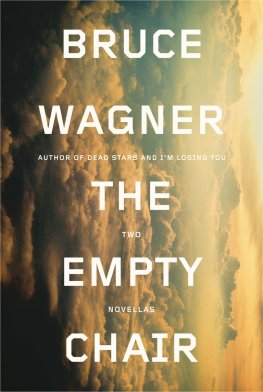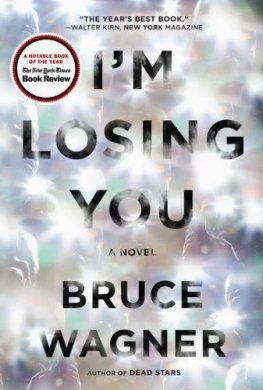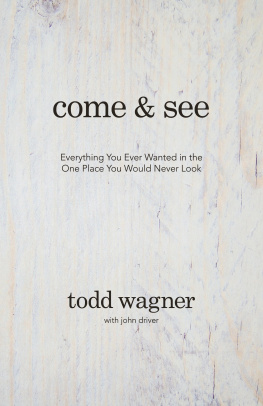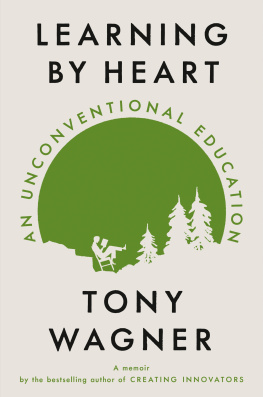Robert Wagner - Pieces of my heart: a life
Here you can read online Robert Wagner - Pieces of my heart: a life full text of the book (entire story) in english for free. Download pdf and epub, get meaning, cover and reviews about this ebook. year: 2008, publisher: HarperEntertainment, genre: Non-fiction. Description of the work, (preface) as well as reviews are available. Best literature library LitArk.com created for fans of good reading and offers a wide selection of genres:
Romance novel
Science fiction
Adventure
Detective
Science
History
Home and family
Prose
Art
Politics
Computer
Non-fiction
Religion
Business
Children
Humor
Choose a favorite category and find really read worthwhile books. Enjoy immersion in the world of imagination, feel the emotions of the characters or learn something new for yourself, make an fascinating discovery.
- Book:Pieces of my heart: a life
- Author:
- Publisher:HarperEntertainment
- Genre:
- Year:2008
- Rating:5 / 5
- Favourites:Add to favourites
- Your mark:
- 100
- 1
- 2
- 3
- 4
- 5
Pieces of my heart: a life: summary, description and annotation
We offer to read an annotation, description, summary or preface (depends on what the author of the book "Pieces of my heart: a life" wrote himself). If you haven't found the necessary information about the book — write in the comments, we will try to find it.
Pieces of my heart: a life — read online for free the complete book (whole text) full work
Below is the text of the book, divided by pages. System saving the place of the last page read, allows you to conveniently read the book "Pieces of my heart: a life" online for free, without having to search again every time where you left off. Put a bookmark, and you can go to the page where you finished reading at any time.
Font size:
Interval:
Bookmark:
A Life
with Scott Eyman
FOR KATIE, NATASHA, COURTNEY
FOR MY MOTHER AND SISTER
AND FOR JILL
THE WONDERFUL WOMEN WHO HAVE BEEN
THE MEANING OF MY LIFE

Cadet Wagner, 1936, with the world in front of him, pretending to like the uniform a lot more than he did. ( COURTESY OF THE AUTHOR )
I was twelve years old when my future passed in front of me. My father had moved our family from Michigan to California in 1937, when I was seven years old, and I began working at the Bel-Air Stables in 1942. There was no Bel-Air Hotel yet, but housing sites in the neighborhood were selling fast.
One day I took a piece of corrugated tin from some construction scrap, bent the front end up, and fashioned a sled, which I stored by a hill on the eleventh hole at the Bel-Air Country Club. On breaks from the stables, I would get on my sled and slide down the hill, where I would come to rest just under a cluster of trees by the edge of the fairway. And then I would sit on the pine needles at the base of the hill and watch the golfers go by. It was a very boyish thing to do, but thats what I wasa twelve-year-old boy.
On this particular day in 1942, I saw a foursome heading off the eleventh tee. They had just hit their tee shots and were walking toward the fairway. I was sitting there, ten or twenty yards from where their shots had landed. As they got closer, they came into focus, and I could see that the foursome consisted of Cary Grant, Fred Astaire, Clark Gable, and Randolph Scott.
I wastransfixed! It was the most amazing experience, not just because I had grown up seeing these men at the movies, at the Fox and the Bruin Theaters in Westwood. It was because they lookedfreshly minted! They say that some movie stars are disappointing when seen in the fleshsmaller, less prepossessing than they appear on the screen. Not these men. They inhabited life as securely as they inhabited the screen. Put it another way: they filled the room, even if the room was outdoors.
In those days, nobody wore signature brands; each great star was his own signature brand. Fred Astaire didnt wear La Coste or Brooks Brothers; he had his own stylea tie knotted around his waist instead of a belt. He was Fred Astaire! To see them there, in the flesh, was an amazing experience because these were not men who went out on the town a great deal or hobnobbed in restaurants.
They stopped and hit their second shotsAstaire had the best, most rhythmic swing by far, followed closely by Randolph Scottand then began walking toward the green. I dont think they saw me. But the important thing was that I saw them.
I realized at that moment that I wanted to be in that club; looking back, I see that this was when I made up my mind to be in the moviesto be an actor.
Within two years, I was walking up and down Hollywood Boulevard, waiting to be discovered. My general theory, insofar as I had a general theory, was that if Lana Turner could be discovered on Sunset Boulevard, I could be discovered on Hollywood Boulevard. I wore a dark brown leather jacket, had my hair slicked back, and would pause in front of plate-glass windows, staring admiringly at my own reflection. The collar was up, and if I say so myself, I had the look.
Someone told me that D. W. Griffith hung around the Hollywood Hotel, so I walked over to the corner of Hollywood and Highland, and it was truethere was Griffith, a dignified, elderly gentleman, sitting quietly in a rocking chair on the veranda, observing the hustle of Hollywood in wartime.
Nobody shared my fascination with my own reflectionthat would come laterbut that didnt matter. I wanted to be in the movies, and I was going to be in the movies. It was just a question of time.

With my parents in front of our house in Bel-Air. ( COURTESY OF THE AUTHOR )
T heres no bastard like a German bastard, and by all accounts my grandfather Mathias Wagner was a nasty man. He was a stevedore in Mannheim, Germany, where Wagner is a very common name. He came to America in 1876 and found that he needed a wife, so his relatives in Germany sent him some pictures of local German girls who wanted to come to America. Two of the girls in the pictures were sisters; my grandfather picked one sister, and his best friend picked the other. And thats how my father was born: as the result of an arranged marriage.
Robert J. Wagner, my father, was born in Kalamazoo, Michigan, in 1890, but he left home when he was ten years old. I have no doubt he was abused; the Germans of that era would punch their children in the face just to let them know who was boss. My father said that his mother, a glorified mail-order bride, had no say in anything. She was more like a hired child-care worker than a wife.
My dad spent his adolescence selling newspapers on the streets of Kalamazoo, working in railroad stations, in bars, wherever there was a paying job. Because he was so estranged from his parents, I never knew them. My grandfather died early, and by the time I met my grandmother, she had developed dementia, so there was no way to establish a relationship.
My parents met on a blind date in Chicago. My mothers name was Hazel Alvera Boe, which was always a sore spot with her. She hated the name Hazel, so everybody called her Chat, because she was so talkative. In time, I would call her C, while her pet name for me became R. She was a telephone operator when she met my father, and he was selling fishing tackle. Before that, hed been a traveling salesman who sold corsets, petticoats, and other womens undergarments wholesale throughout the Great Lakes region.
A few years after they met, he was in a hardware store where a guy was mixing a can of paint. My father liked the look of the surface it gave. He found out about the paint company, which was called Arco, and then he found out the name of Arcos president, and he became a salesman for that paint. (Needless to say, my father was a go-getter.) He ended up getting the Ford Motor Company account; he sold most of the lacquer that was applied to the dashboards of Ford cars, and in short order he became very successful. Besides that, both before and after his Ford period, he bought and sold lots around the Palmer Woods area of Detroit. He would build houses, and my mother would decorate them.
My father was the sort of man who was obsessed by his business, and even after his kids arrivedmy sister, Mary Lou, in 1926, me on February 10, 1930that never changed. I was christened Robert John Wagner Jr., but since my father answered to Bob, and nobody, especially me, wanted me to be known as Junior, I became known as RJ, which my friends call me to this day.
Mary Lou was the valedictorian of her class, but she wanted a quiet, domestic life, and she got it. Shes a wonderful woman, with a totally different life than mine. Shes had five children and numerous grandchildren. Shes lived in the same house in Claremont for decades and doesnt venture out that much.
When I was a small child, we all lived in a beautiful house on Fairway Drive, right off the Detroit Golf Club, but the best times with my father were summers in the Upper Peninsula of Michigan, where he had a cabin on a lake. I vividly remember riding through meadows on horseback with my father and uncle. There were no sounds except the whisk of the grass as the horses moved through it, and at night the moon was so bright you could read by it. It seemed like we were the only people alive, and I basked in my fathers undivided attention. It was during these times that he taught me how to fishprobably his greatest, longest-lasting gift to me. These were weeks out of Hemingways Nick Adams stories, and they are my most cherished memories of early childhood.
Font size:
Interval:
Bookmark:
Similar books «Pieces of my heart: a life»
Look at similar books to Pieces of my heart: a life. We have selected literature similar in name and meaning in the hope of providing readers with more options to find new, interesting, not yet read works.
Discussion, reviews of the book Pieces of my heart: a life and just readers' own opinions. Leave your comments, write what you think about the work, its meaning or the main characters. Specify what exactly you liked and what you didn't like, and why you think so.













